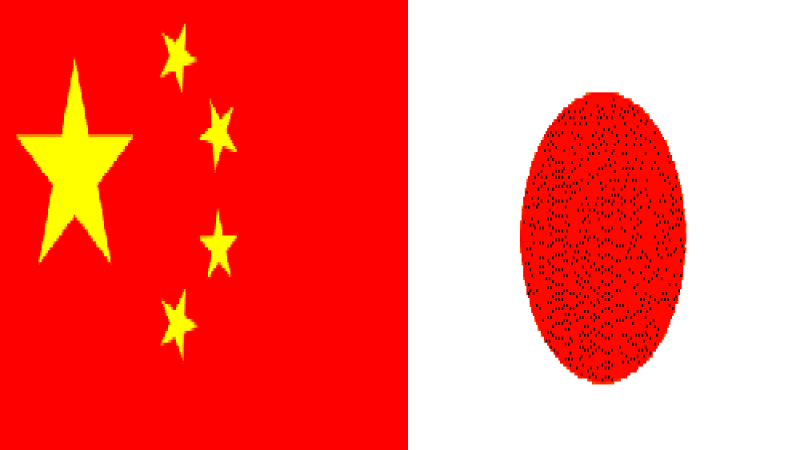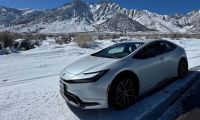Japan had been the world's second largest economy going all the way back to 1968 – a year before man walked on the moon and 11 years after Toyota first started operating in the United States. China moved into second place after the United States, the Wall Street Journal reports, because the end of auto subsidies in Japan put a wet blanket on the car buying market, smokers are paying higher taxes, and a strong yen makes it more difficult to export product for a profit.
The Japanese government had been giving incentives to purchasers of environmentally-friendly vehicles. That program ended last September and the effect on the economy was being felt strongly less than two months later as people were no longer in a rush to buy new cars.
U.S. Rep. Joe Knollenbger (R-Michigan) said in a letter to the Wall Street Journal that Japan had been unfairly given its auto manufacturers a leg up with a weakened yen. He claimed it was, in effect, a $4000 to $14,000 subsidy per vehicle. He said the weak yen created a roughly $3800 profit edge for Toyota over its Big Three counterparts of Chrysler, Ford and GM.
Now that Japan has decided to strengthen its yen that advantage appears to be going away – and making their products more expensive to export.
China's not in the same boat, though. Its consumers can't wait to buy new cars and their buying power has manufacturers from around the world salivating at the chance to corner that market. China also imposes controls requiring outside manufacturers to form local alliances, which makes for a profitable relationship and, in spite of a communist government, a market that is much more open than the highly restrictive Japanese market.
China was the number one automotive market globally in 2010 and shows no signs of slowing in 2011. The United States will stay close but be overwhelmed by a population that is three times larger. Granted, not all Chinese can afford new vehicles but sheer volume wins out.
This weakening Japanese market could spell trouble for companies currently selling in the United States. Two that come to mind immediately are Mitsubishi and Suzuki. Mitsubishi can barely sell new cars in the United States and even has trouble moving vehicles in the white-hot certified pre-owned market. In January, according to AutoData, it sold 40 certified pre-owned vehicles across the country. Bentley sold 30 in the same time period.
Suzuki is a company doing extremely well, relatively, everywhere else BUT in the United States. Say Suzuki in almost any other country in the world and there is instant name recognition for its automotive products. Say Suzuki in the U.S. and people think motorcycles. It has a weak dealer network and a lackluster stable of products. The Swift coming to Geneva in March will help bolster that stable internationally but honestly it will probably be met with a yawn by the American car-buying public that still equates bigger with better.
At some point Suzuki needs to come up with a winner in the U.S. market. With financial problems in its home market, where it performs well, the U.S. market could just not be seen as viable any more. It's demise would not be widely felt domestically because it only sold 23,994 vehicles in 2010 – an actual drop of 37% from 38,689 in 2009. Mitsubishi managed to squeak out a little more in sales with 55,683 models moved, an improvement from 2010 of about 3.8%
The drop in Japan's economy, though, may not be putting the same pressure on Toyota (well, except for those ongoing problems with recalls). Toyota, for all intents and purposes, is a major U.S. manufacturer. It has more than 28,700 employees in the U.S. and has nine manufacturing plants in Alabama, California, Indiana, Kentucky, Missouri, Tennessee, Texas and West Virginia. They produce the Avalon, Camry/Camry Hybrid, Highlander, Sequoia, Sienna, Tacoma, Tundra and Venza.
By building so many vehicles here, Toyota avoids the problems associated with the yen because it's not exporting as many vehicles to the United States. Plus, with annual sales 50 times that of Suzuki and 30 times those of Mitsubishi, it is better able to weather economic turmoil.
Plus, being the world's third largest economy is not a bad place to be either. As the Wall Street Journal reports, the Japanese economy is getting a lot of help from the voracious buying appetites of the Chinese consumers. The Wall Street Journal also says analysts predict that continued growth in the Chinese economy as well as further pickup in the U.S. is expected to help Japan's economy bounce back in the first quarter of 2011.
Set Torque News as Preferred Source on Google











